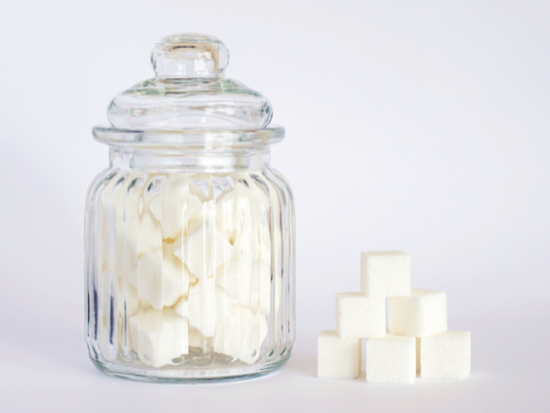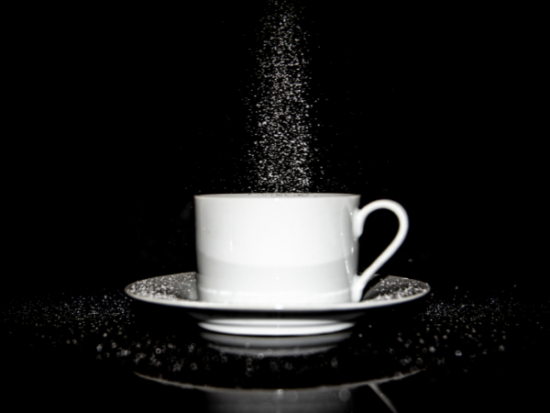What is erythritol? What to know and what to avoid
Erythritol is a class of compounds, and they are called sugar alcohol. Many different types of sugar alcohols are used in our foods today.
These sugar alcohols are called xylitol, sorbitol, and maltitol. Sugar alcohols are functioning as low-calorie sweeteners. They are found in sugar-free or low-sugar items.
Erythritol, like other sugar alcohols, can be found in nature and small amounts. They are found in fruits and vegetables.
Erythritol is not like any other sugar substitute. It has fewer calories than a lot of foods. Erythritol contains .24 calories per gram.
Erythritol is natural, there are no side effects, and it tastes like sugar without calories. It has a lot of qualities of sugar. However, there are not any negatives that come along with it, as sugar has.
It is made when a certain type of yeast ferments glucose from wheat or corn starch. There is still a lot of research that needs to be done before being safe.
Is erythritol good or bad for you?
Erythritol appears to be a safe substance. However, there have been many studies on how toxic it is and its effect on the metabolism performed on animals.
In the animals that tested the erythritol, the effects were not serious, but one was detected. This is the digestive system cannot process it well. There could be some upset stomach and digestive effects.
It seems that the body cannot digest them well. Also, it goes unchanged once in your body. It will stay that way until it goes in the colon. The colon produces gas.
If you eat high doses of sugar alcohol, you should know that it can cause bloating and upsetting your stomach.
Erythritol is absorbed through the bloodstream before the colon. With little or no side effects, it can cause an upset stomach and some digestive pain.
There are many natural sweeteners on the market today. Besides erythritol, there is also stevia. Many people use it every day.
Is erythritol safer than stevia?
Growing up, we were always told not to eat so much sugar. Sugar and its many issues can cause a lot of trouble sometimes. We have compared stevia and erythritol to see which one is safer.
Stevia sweetener comes from the leaves of the Stevia rebaudiana plant.
This plant is found in South America, and the leaves have been used for sweetener medicines and teas for many years. Now, Stevia is grown locally and all over the world.
Stevia is of creation by drying the plant’s leaves, steeping the leaves in hot water, and filtering the extract to make pure and concentrated stevia.
There are no chemicals or artificial things used to extract the stevia either.
Stevia is 200 times sweeter than sugar but does not bother blood sugar or insulin levels. People with diabetes often crave the sweet taste of Stevia.
Stevia does not cause tooth decay and is very tooth-friendly.
There are no calories, and it has no bad effects on your body. It has a bad after taste, but that is all.
Erythritol is a newcomer to sweeteners. It is very natural, and it is of fermenting sweet starches in fruits and vegetables. Fermenting takes all of the starch out of the fruits and veggies.
The one flaw of erythritol is that it does not break down in your body. It can have a laxative effect on you.
Artificial sweeteners are safe for consumption and have been approval by the Food and Drug Administration.
Which is the safest artificial sweetener?
Erythritol is one of the top safest artificial sweeteners. It naturally occurs in fruits and vegetables and tastes just like sugar. If you consume a lot of this, you can be sick. Small amounts are fine to consume.
There are a few side effects that consumers may experience after digesting erythritol. These occur because of the body’s absorption.
Erythritol partially gets absorbed by the small intestine. There is a portion that will not be metabolized in the body. The kidneys remove erythritol from the bloodstream, and it is excreted unchanged in the urine.
Erythritol can cause more gas production and flatulence. It can cause loose stools and nausea as well. Daily consumption is based on your body weight.
It is not truly calorie-free. It contains 4 grams of non-digestible carbohydrates.
Is Erythritol a Chemical?
Erythritol is technically a synthetic sweetener. It is a type of carbohydrate people refer to as a polyp or sugar alcohol. It is found in fruits, mushrooms, and fermented foods. These fermented foods are wine, sake, soy sauce, and miso paste.
According to the Food and Drug Administration, FDA, Erythritol is labeled as natural. It is found in nature and from a natural source.
What is Erythritol Made From?
Erythritol is of fermenting corn, other fruits, and vegetables. It gets glucose from starch. It can also be by fermentation from apples and pears.
Is Erythritol Natural or Artificial?
Erythritol is of consideration as a synthetic sweetener. It is a zero-calorie sweetener. Also, it is paleo-friendly, low carb, and keto-friendly as well. It is an antioxidant as well.
It has been labeled as natural by the FDA. Erythritol is safe, and the FDA recognizes it as that.
Related Articles
Summary
To sum it all up, Erythritol is a sweetener that has not been on the market for long.
There is a lot of research on the sweetener. It can be in grocery stores and markets all over the globe.
Erythritol is a natural sweetener. It is from fermenting foods, such as fruits and vegetables. It does not affect blood sugar or insulin levels and has a low-calorie count.
Besides the few side effects, it has positive effects on oral health in many ways. It does not affect blood sugar or insulin levels.
If you would like to know more about Erythritol before consuming it, hopefully, this article gives you information that you need to decide to consume.





